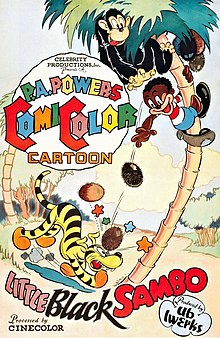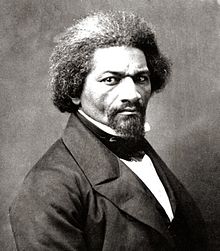User:DaughterofAse/Black Feminism

Black feminism is a particular branch of feminism and philosophy which includes the feminist theory and cultivation of Black feminist thought and idealism regarding the humanity of Black women outside the lens of traditional White feminism. This evolving definition includes the idea that “Black women are inherently valuable, that [Black women's] liberation is a necessity not as an adjunct to somebody else's but because our need as human persons for autonomy." Black feminist theory contends that black women have an acute understanding of the negative impacts of sexism, racism, and class discrimination. Furthermore, race, gender, and class discrimination are all aspects of the same system of hierarchy, namely the "imperialist white supremacist capitalist patriarchy". Due to their inter-dependency, they combine to create something more than experiencing racism and sexism independently. The experience of being a black woman, then, cannot be grasped in terms of being black or of being a woman but must be illuminated via intersectionality, a term coined by legal scholar Kimberlé Crenshaw in 1989 to describe that each identity—being black and being female—should be considered independently, but also for their interaction effect, while understanding that intersecting identities deepen and reinforce one another, and potentially lead to aggravated forms of inequality.
Black feminist perspective in the United States was first employed by black women to make sense of how white supremacy and patriarchy interacted to inform the particular experiences of enslaved black women. Black activists and intellectuals formed organizations such as the National Association of Coloured Women (NACW) and the National Council of Negro Women (NCNW). Black feminism rose to prominence in the 1960s, as the civil rights movement excluded women from leadership positions, and the mainstream feminist movement largely focused its agenda on issues that predominately impacted middle-class white women. From the 1970s to 1980s, black feminists formed groups that addressed the role of black women in black nationalism, gay liberation, and second-wave feminism. In the 1990s, the Anita Hill controversy brought black feminism into the mainstream. Black feminist theories reached a wider audience in the 2010s as a result of social-media advocacy.
Proponents of black feminism argue that black women are positioned within structures of power in fundamentally different ways than white women. In the early 21st century the tag "white feminist" gained currency to criticize feminist who avoid issues of intersectionality. Critics of black feminism argue that divisions along the lines of race or gender weaken the strength of the overall feminist movement and anti-racist movements.
Among the notions that evolved out of the black feminist movement are Alice Walker's womanism and historical revisionism with an increased focus on black women.[page needed] Angela Davis, bell hooks, Kimberlé Williams Crenshaw, and Patricia Hill Collins have emerged as leading academics on black feminism, while black celebrities have encouraged mainstream discussion of black feminism. Slavery is the seedbed of Black feminism. This peculiar institution has been the historic differentiation amongst Black women and other feminist women in the world, being the primary dominating differentiation between Black women and all women who identify outside of the Black or Africana Diaspora. The ideology of chattel within the ethics of Slavery and U.S. laws includes Black women and their bodies which were controlled and experienced gender violence such as rape. Slave humanity was considered Black humanity within the grand scheme of U.S. laws regarding Black lives. Black women did not have an identity inside or outside of Slavery as a result of patriarchy and racism, as the two social ills ultimately created a space and community to come known as Black feminist.
Beginning of U.S. Wave of Feminism: 18th Century


Black women were considered property and not people within early colonial America and during the first wave of feminism within the Women's Suffrage Movement of the 18th century. Black bodies were understood to be chattel or perhaps inhumane objects, as the cannon of Black life during Antebellum America would ultimately craft the minds of White women who would become feminist such as Elizabeth Cady Stanton. It was within this movement she delivered a speech that presented Black women as inhumane, as her historic speech within the Women's Suffrage Movement honorably described White women perhaps as elitist, referring to White women in her speech as "the Daughters of Jefferson", and intentionally describing Black women as daughters of "Sambo" and "black boot".[1] Appalled and disdain to accept the racist ideas of Stanton, perhaps Frederick Douglas took his place as a Black male feminist by writing Stanton and asking the question, "What difference is there between the daughters of Jefferson and other daughters"? Douglas defended the femininity, humanity, and being of black women and continued to advocate black women throughout the Women’s suffrage. The organizational behavior of the institution of Slavery includes racism and classism which is a part of the roots and social foundation of some White feminist as a result of their White heritage. Race and gender intersect within the tapestry of feminist thought and it is here at this cross section where Black women and Black men came to a point in 1869 after being exposed to racism within the Women's Suffrage Movement.
The sons and daughters of Slavery include those who would give birth to the concept and contextualism of Black feminism which challenged the Women's Suffrage Movement. Perhaps the historic response of an abolitionist within the Women's Suffrage Movement creates the notion that Frederick Douglas is the first Black male feminist to create agency for the concept of Black feminism during the Women's Suffrage Movement of 1869. Although Western civilization and white American terms such as coon and nigger created a different world in the United States of America; particularly for West African descendants; the first true wave of feminism embodied ideas against all Black humanity; Douglas felt this wave; developing a state of mind and strong resistance to White power and White feminism within his leadership for Black equality. Black lives mattered to Frederick Douglas within all of his public works in history, he labored and travailed for Black humanity and freedom. The malaise of White thought and White supremacy gave birth to the daughters of racism who were a part of the Women's Suffrage Movement of 1869. Douglas was a son of liberation, one who demonstrated black power by way of advocacy for Black women within the Women's Suffrage Movement.
Black feminism has been around since the time of slavery. If defined as a way that black women have sought to understand their position within systems of oppression, then this is exemplified in Sojourner Truth's famous speech, "Ain't I a Woman?", which was delivered in 1851 at the Women's Convention in Akron, Ohio. Truth addressed how the issues being discussed at the convention were issues that primarily impacted white women.The book, A Voice from the South (1892), by Anna Julia Cooper has been credited as one of the first pieces of literature that expresses a black feminist perspective. Cooper's contemporary, writer and activist, Frances Ellen Watkins Harper, proposed "some of the most important questions of race, gender, and the work of Reconstruction in the nineteenth century". According to Harper, white women needed suffrage for education, but "Black women need the vote, not as a form of education, but as a form of protection". In the 1890s Ida B. Wells, a politically driven activist, became famous for seeking to find the truth about the lynching of black men, a subject that many white feminists avoided.

